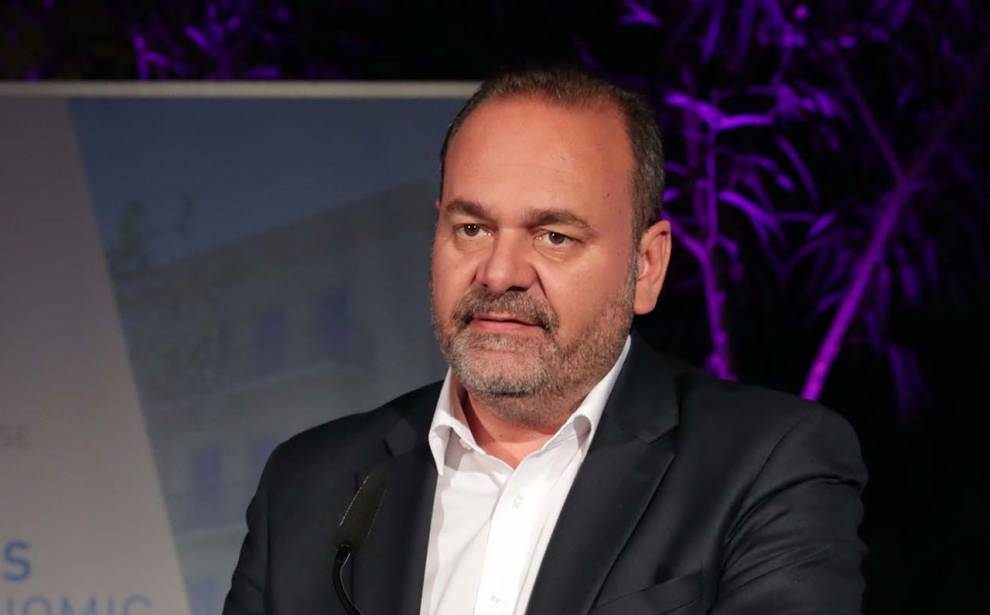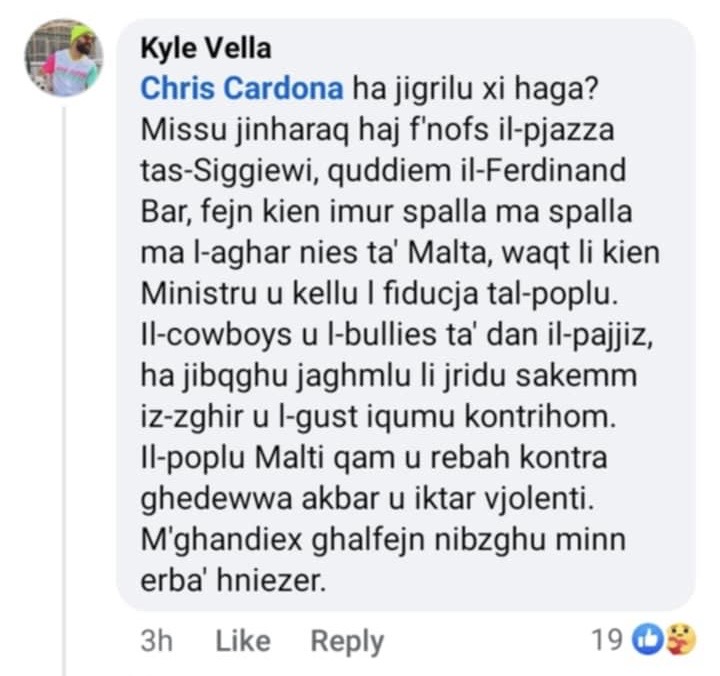On 10 May 2025, former Minister Christian Cardona became the target of chilling threats posted beneath a Times of Malta Facebook article. The comment, openly calling for Cardona to be “burned alive in the middle of Siggiewi square” was immediately flagged to the police through Malta’s Remote Reporting System.
Yet despite the severity of the threat, no prosecution, no follow-up investigation, and no action of any kind appears to have taken place.

Chris Cardona
A Threat Reported, A File Closed
According to the police incident report filed on 11 May 2025, Cardona personally alerted authorities after encountering the violent comment, allegedly written by a man identified as Kyle Vella.
The post included explicit violent imagery, personal insults, and rhetoric that clearly met the thresholds for incitement to violence and hate speech.
Cardona submitted screenshots directly to the police, and officers confirmed the material had been forwarded to the St Julian’s Police Station via email.

Seems that the case simply stopped there.
A Serious Crime, Met With Silence
The report itself lists the incident as “Threats and Private Violence — Threats by Means of Writing.”
But beyond the intake entry, the documentation ends abruptly. There is:
- No reference to any investigation
- No indication the alleged author was contacted
- No charges, no prosecution
A police complaint involving a threat of public execution should never vanish into a bureaucratic void. Yet this one did.

Kyle Vella
A Wider Problem With Online Threats in Malta
Cardona, who has faced years of online harassment, described the comment as “a direct incitement to violence with clear instructions for public execution.”
His interpretation is not exaggerated: any democratic system that values public safety would treat such a threat as an urgent matter.
Instead, the case highlights a deeper issue in Malta:
online threats, especially against political figures, public personalities, and controversial voices are too often ignored unless physical harm actually occurs.
This incident raises uncomfortable but essential questions:
- Why were no charges pursued despite clear evidence?
- Are online threats being selectively enforced?
- And what message does this send to anyone who believes violence is acceptable political expression?
If the police will not act even when the threat is documented, identified, and formally reported, what protection can be expected by anyone else?
This case is not just about Christian Cardona.
It is about whether Malta takes online violence seriously and whether authorities are willing to enforce the law equally, consistently.





